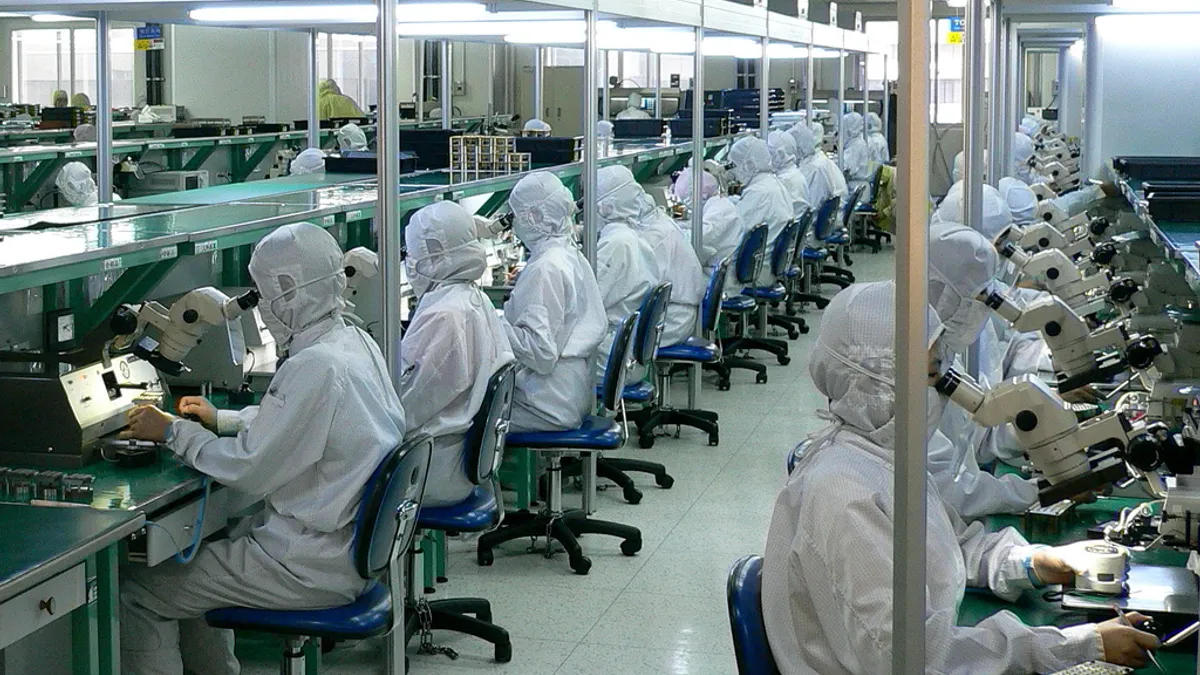Dive Brief:
- Two Foxconn Technology workers died last week in work-related incidents at the company's Zhengzhou, China plant, which is responsible for producing iPhones for Apple, the Wall Street Journal reported Monday.
- One worker committed suicide after a night shift; the other was struck by a train after flooding blocked the safer path to her workplace. Foxconn and Apple are investigating the issue. Reports suggest the deaths may have resulted from long working hours coupled with low pay and stringent overtime restrictions.
- Apple claims it requires its suppliers to uphold fair labor and human right standards, but it is not the first time Foxconn has faced scrutiny for labor-related deaths. In 2014, the Fair Labor Association audited the company after more than a dozen suicides were reported in its factories — following the audit, the company pledged to improve labor conditions.
Dive Insight:
The tragedy immediately raises two key, ethical questions for all supply chain managers: what responsibility does a company hold over a supplier's human rights violations; and how can a company enforce the policies within their supply chain?
Equally important, however, the deaths shine a light on the psychological effects of harsh labor conditions and potential human rights violations within the supply chain.
A recent report by Verisk Maplecrost said global companies with supply chain operations in 115 countries were at either "high" or "extreme" risk of association with modern slavery. China, India, as well as cobalt-, cocoa-, and apparel-exporting countries topped the list of countries at higher risk of slavery in productive facilities.
Yet the risks are not limited to developing countries. Only the U.K., Germany, Denmark and Finland were at low risk of modern slavery in their supply chains according to the report. Meanwhile, a recent Center for Disease Control analysis indicates the U.S. productive industry recorded the third highest number of suicides in the country during 2012.
In a news release about the high corruption and modern slavery risks in Asia-based supply chains, Source Intelligence recommends implementing a supplier code of conduct and whistleblower program to prevent human rights abuses. However, Apple's previous audit of Foxconn reveals the company had a code of conduct in place — the issue is enforcing it.













